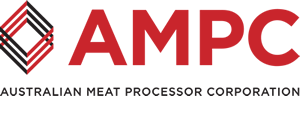Visa-workers are a critical part of the red meat processing industry’s future, but many processors find current visa programs complex and expensive. AMPC research is contributing to a project designed to find new ways to ensure labour needs are met.
AMPC is pleased to be working in collaboration with the Australian Meat Industry Council (AMIC) to try and address one of the biggest challenges faced by meat processing businesses: making it simple and cost effective to access overseas workers through visa programs.
“Valid research is key to unlocking solutions,” says Chris Taylor, AMPC Executive General Manager.
As part of this project, AMPC engaged a leading consultancy firm to conduct research to understand the current data and policy environment and this included a survey of members.
“The insights and experiences of those in the industry are extremely important,” Chris says. “Our research shows that industry overwhelmingly wants to see flexibility within visa programs.”
Visa issues identified ranged from visa holders being locked into one role with no leeway for other duties, restricted access to up-skilling or training, and long processing timeframes. Another key issue was the pathway to permanent residency (or rather the lack of).
“Our research showed that once a plant has identified valuable staff, keeping them is complicated and expensive. We found a need for a reduction in costs, flexible working arrangements with existing visas, a single administration point-of-contact for plants and government, and accessible pathways to permanent residency, with the bonus of a better ‘return on investment’ for expenses incurred by plants.”
The recommendations from the research were tested with key industry stakeholders, to ensure future solutions will address the labour issue and provide the flexibility and pathways the red meat industry requires.
“This project has been pivotal to efforts to illustrate the challenge of the ongoing severe labour shortage in the meat processing industry and the compounding effect it has on the whole supply chain. Although the genesis of this project started prior to the Covid-19 pandemic, its effects have highlighted the importance of the meat industry as an essential service, but it also added to the problems of the industry to seek new employees,” Chris says. This research will help inform the future actions of industry and policymakers on this important issue.
The final report Working towards an ideal RMI visa program stage 2 can be found here.
For background information the final report from stage 1 can be found here, including the visa ready reckoner.
Members may also wish to see the survey results which can be found here.



